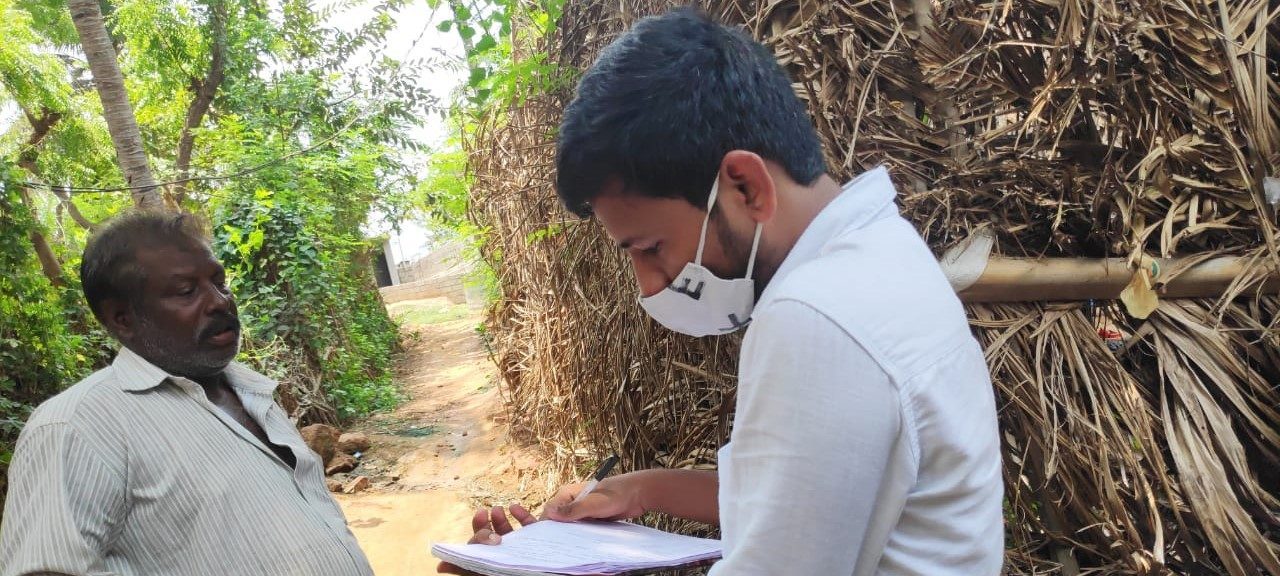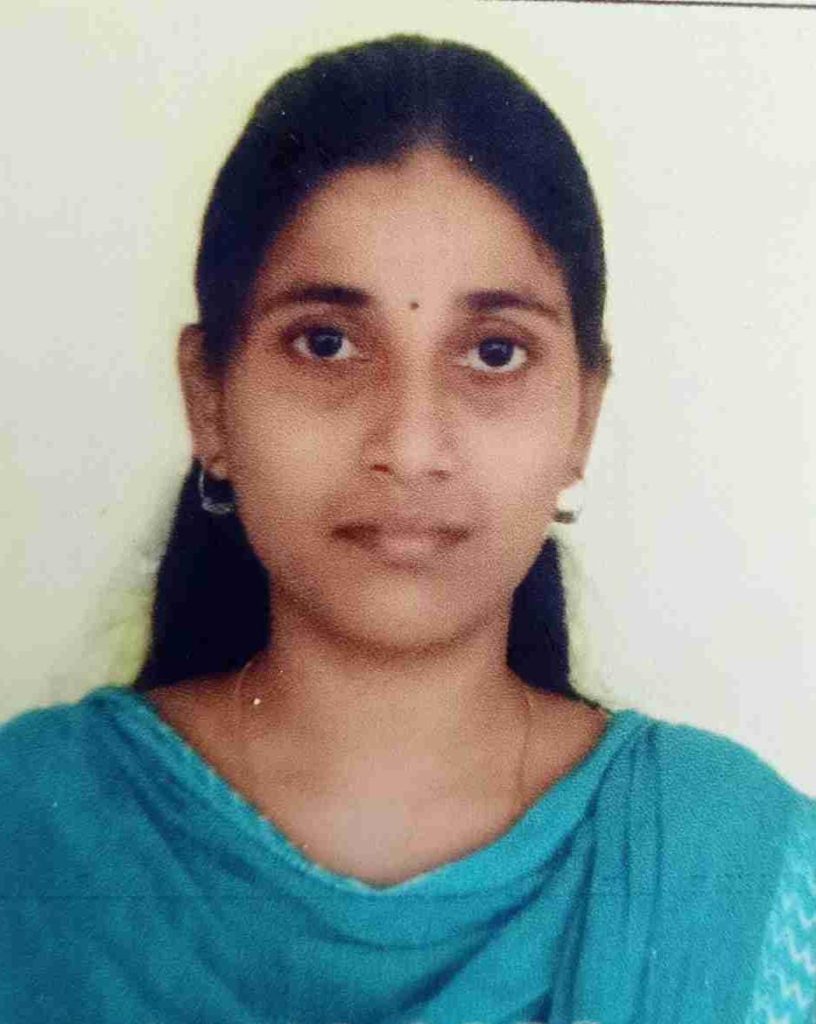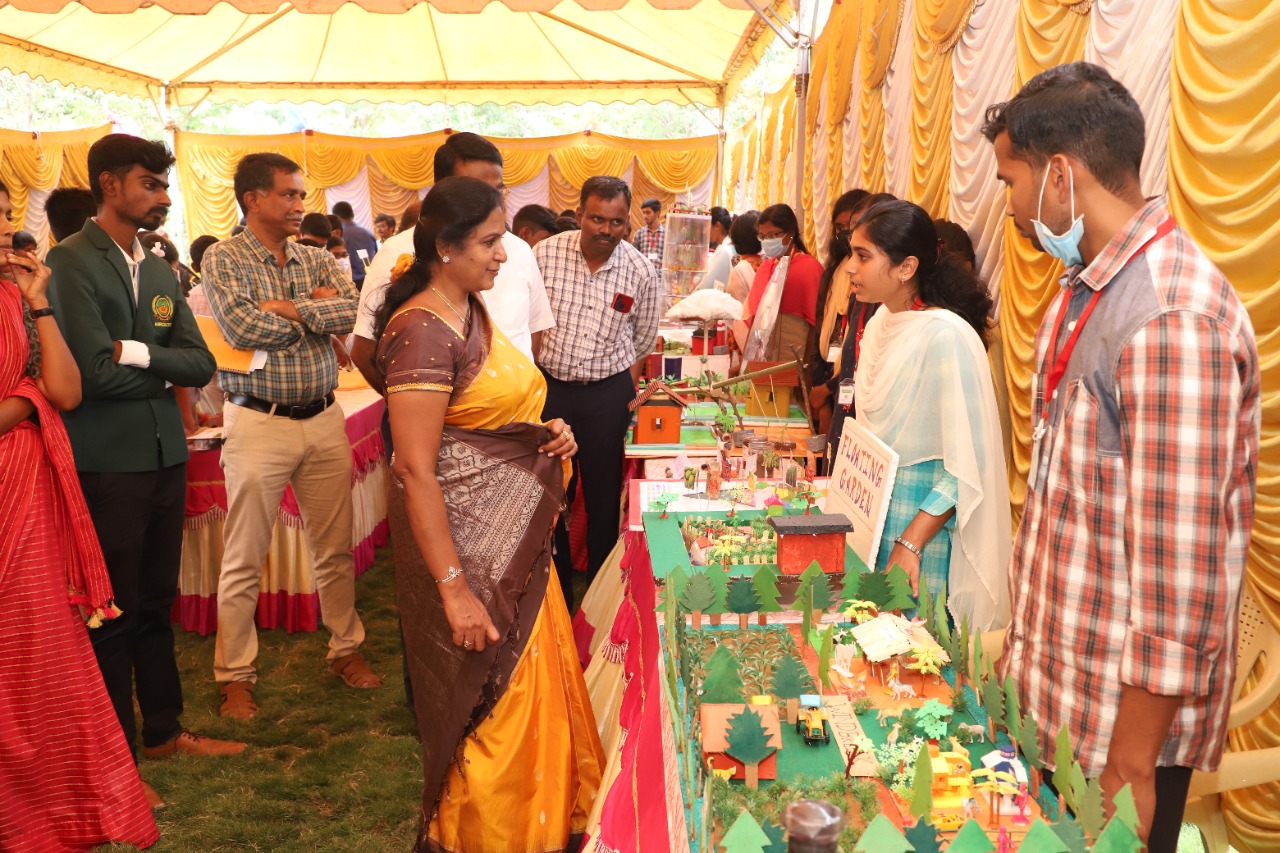The Tamil Nadu Agricultural University (TNAU) had its genesis from establishment of an Agricultural School at Saidapet, Madras, Tamil Nadu, as early as 1868 and it was later relocated at Coimbatore.
Get in touch
- info@tnau.ac.in
- 0422 6611200
- Monday to Friday: 9am to 5pm

M.Sc. (Ag.) in Agricultural Economics
Prelude
Agricultural Economics deals with exploring the link between Agriculture and the Economy. It describes how societies use available resources to meet the needs of people. Agricultural economists study agriculture from a business context with social welfare in mind which involves where and how products are being produced, consumed, financed, marketed, processed, regulated, researched, taxed and exported wherever and whenever possible.
Why this programme?
- To inculcate thorough understanding of the subject in learning higher education in the field of agricultural economics to meet the ever increasing technical manpower demand in different sectors.
- To develop globally competitive human capacity in Agricultural Economics research and policy framing.
- To promote research on frontier areas of Agricultural Economics. Student dissertation topics span a wide range of contemporary issues related to modern techniques of agricultural production and farm planning, natural resources and environmental economics, climate change, agricultural marketing, IPR, Geographical Indications, value chain, agricultural finance, international trade, research prioritization, agricultural development and institutional economics.
- To impart skill among students for undertaking innovative and policy oriented research in frontier areas of agricultural economics covering wide range of issues to achieve developmental objectives of the State, Nation and Global society.
Study Programme
The Masters programme in Agricultural Economics has been designed following ICAR guidelines.
The major courses offered are Microeconomics, Macroeconomics, Agricultural Production Economics, Econometrics, Development policy, Natural Resource Economics, Environmental Economics, Institutional Economics, International Economics and Agricultural Marketing. The curriculum includes a comprehensive treatment of modern theory and empirical techniques as well as field courses taught by well experienced teachers in each of the subfields of the discipline.
- Primary objective of student dissertation topics in Masters Programme is equipping students for undertaking independent research in frontier areas of agricultural economics.
Colleges offering M.Sc. (Ag.) in Agricultural Economics
The master programme in M.Sc. (Ag.) Agricultural Economics is offered at the following TNAU campuses.
- Department of Agricultural Economics, TNAU, Coimbatore
- Department of Agricultural Economics, AC&RI, TNAU, Madurai
Application and Admission
Interested in taking part in the programme of M.Sc. (Ag.) in Agricultural Economics? Find out more about the specific Admission requirements and the application procedures. If you doubt whether admission is possible, feel welcome to apply online. The Admission Committee will check your admissibility.
Future Career
Students of the Department of Agricultural Economics in the past excelled in diverse professional areas such as research, civil service, university faculty, entrepreneurship, financial / economic analysis and consulting.
Master’s in Agricultural Economics
Master Course Work
After admission, the students undergo a set of courses that help them understand the basics of Agricultural Economics as per the Choice Based Credit System (CBCS) with a total credit load of 42 credits. Courses will be offered for two semesters in the first year of the degree programme.
Master’s thesis research
After completing the courses in the first year, the students start their thesis research. Each student is assigned to an experienced faculty to be the Chair person of the advisory committee, approved by the Dean of School of Post-Graduate Studies. The committee would guide the student on his/ her choice of research topic to complete 20 credits. At the end of the degree programme the students is expected to submit a thesis report highlighting the research problems addressed, methodology followed and results obtained.
Research internship
The students are exposed to several scientific events like symposia and conferences showing the means to get financial assistance for their study. Many are encouraged to have internship training at other institutes for a couple of months, either in India or abroad.
Student Experiences

I am Tarun Gandhi., from Rajasthan. I am pursuing I year post graduation in Agricultural Economics in TNAU. Faculties at this department are experienced and supportive. Various trainings, workshops are being arranged regularly, which are very useful for our future research work. I am grateful to the faculties at the Dept. of Agrl. Economics for providing quality education.

I am Mounika. R., completed my post graduation during 2022 in the discipline of Agricultural Economics from TNAU. I am honoured to be alumni one of the prestigious agricultural universities in India. Study environment at TNAU helps the students to learn with pleasure. The faculties at this department are experienced with immense knowledge and guides and motivates the students throughout their research.

I am Yazhini.A, completed my post graduation in Agricultural Economics during 2022 at the Department of Agricultural Economics from TNAU. Proud to be student of TNAU. Faculties at this department are experienced and easily approachable to clear our doubts. Research work and seminar helped me to improve my confidence level to carryout research work independently.

